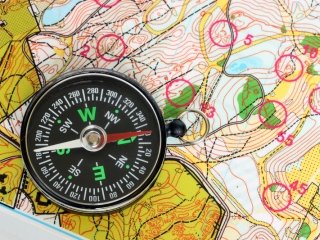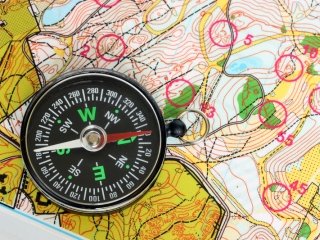 When it comes to backpacking, the gear that each of us won’t leave home without varies from person to person. Some like to bring a travel guitar, while others are sure to pack a portable set of fishing gear in case they decide to take a rest alongside a river or lake. No matter what extra items you decide to bring with you the next time you hit the trail, I think we can all agree that there are items that are absolutely essential to any hiking trip. Below, I’ve touched upon what I believe to be the items that no camper or hiker should leave home without, based upon consultation with friends who enjoy the outdoors, as well as my own experiences.
When it comes to backpacking, the gear that each of us won’t leave home without varies from person to person. Some like to bring a travel guitar, while others are sure to pack a portable set of fishing gear in case they decide to take a rest alongside a river or lake. No matter what extra items you decide to bring with you the next time you hit the trail, I think we can all agree that there are items that are absolutely essential to any hiking trip. Below, I’ve touched upon what I believe to be the items that no camper or hiker should leave home without, based upon consultation with friends who enjoy the outdoors, as well as my own experiences.
For the sake of organization, I’ll list the items (in no particular order), and then detail the importance of each after. The items consist of the following: a map, a compass, flashlight (extra batteries), extra food, extra water, emergency clothing (raingear, socks, etc.), waterproof matches and firestarter, a knife, and a first aid kit.
A map is essential when meandering your way through the wilderness, especially if it’s a new location. Not only will the map help you locate your position, but it will display routes, topography, available water sources, and emergency locations. A good compass goes hand in hand with your map, as the terrain looks a lot different from your point of view than it does on the map itself. I suggest taking a course in using the compass, as well.
Flashlights are great not only for illuminating the darkness, but also for signaling for help if the need arises. Head lamps are an even better item to have, as they shine wherever you look and also leave your hands free to do other things.
Food rich in calories and vital nutrients is imperative to maintain energy and focus when hiking, and an extra day’s supply is highly recommended. Water is even more important, and it’s important to always have enough so that you have extra when you reach a destination where more is available. Also, a portable purification system isn’t a bad idea, just in case.
Weather can change quickly, and without warning, while hiking, especially if you find yourself above the tree line. Having an extra change of clothes is a good idea. Also, a lightweight rain jacket will be a blessing should you be caught in a downpour. Speaking of downpours, if one occurs, you’ll be thankful that you packed waterproof matches and a firestarter. Being wet only adds to the harsh cold and without a fire, things can go from bad to worse.
A knife will be your best friend on the trail for many reasons. Whether you need to shave kindling for a fire or cut strips of clothing for emergency bandages, a knife is a multifunctional tool that can save your life. Along those lines, a first aid kit is perhaps the most important item to pack. Kits are available to accommodate a number of hikers and a number of days, and I suggest purchasing the next higher level than you think you’ll need, just in case. Also, contacting your local fire department for basic first aid training is a good idea as well.
While backpacking is about shaving weight where you can, these items are must-haves for any trip that actually don’t take up much room at all. Any hiker will attest to their importance and most will be able to share stories on how any one of them may have saved their life at some point. Be sure to include each of them in your pack on your next trip.








